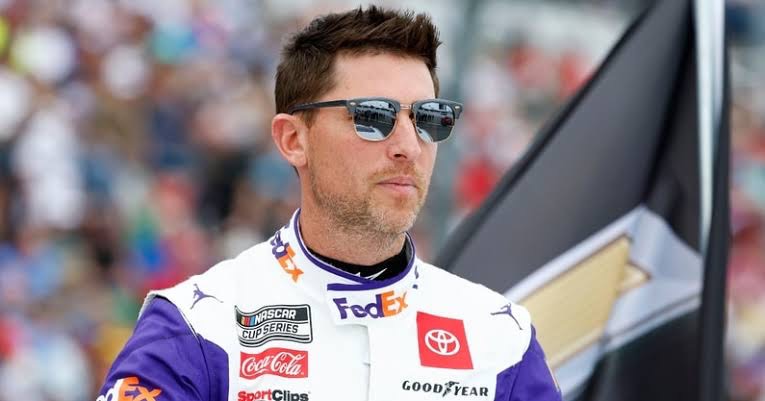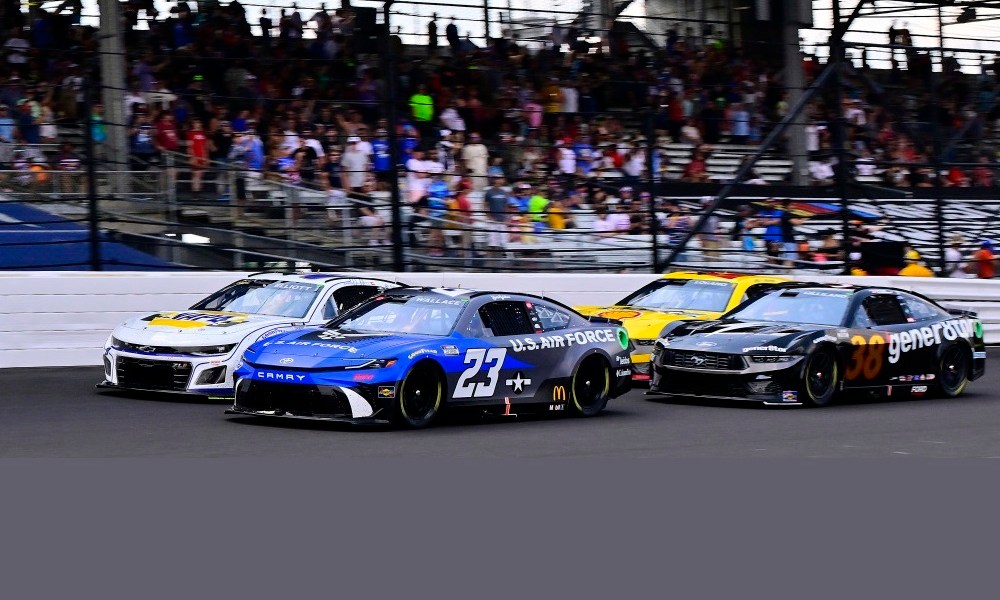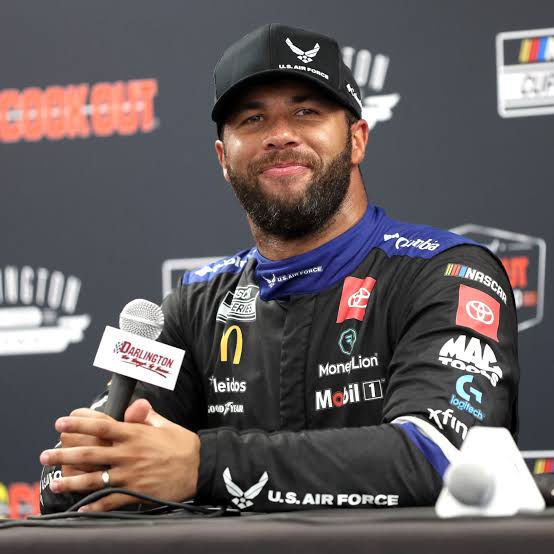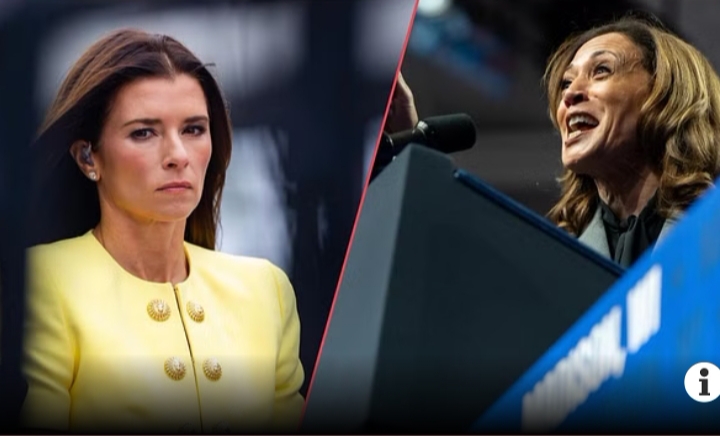The 2024 NASCAR Cup Series Playoffs at Bristol Motor Speedway didn’t just leave fans talking about the wheel-to-wheel action—it also ignited a fierce debate over the tires used in one of the season’s most high-stakes races. Leading the charge in this discussion is Denny Hamlin, who didn’t hold back in calling out Goodyear for what he referred to as significant “tire variance” that impacted drivers’ performances on race day.
In typical Bristol fashion, the race was packed with intensity, close-quarters racing, and dramatic moments. However, Hamlin’s attention was focused less on the competitors around him and more on the unpredictable performance of the Goodyear tires that had been supplied for the playoff event. His public comments have since sparked a wave of reactions from fellow drivers, fans, and analysts, reigniting a long-standing issue in NASCAR’s tire wars: consistency.
The Tire Variance Controversy
Following a hard-fought battle at Bristol, Hamlin took to the media to express his frustration with the performance of Goodyear’s tires throughout the race. In his view, the inconsistency in tire performance created an unpredictable racing environment that played a role in how certain drivers fared on the notoriously challenging half-mile track.
“Tire variance has always been an issue, but what we saw at Bristol was extreme,” Hamlin stated post-race. “Some sets of tires felt great and had a lot of grip, while others just completely fell off. It’s frustrating when you’re racing in the playoffs, and something like that is outside of your control.”
Bristol, known for its high banks and fast-paced, short-track chaos, places a unique strain on tires, making consistency crucial for drivers fighting for a playoff spot. Hamlin, a seasoned veteran and championship contender, expressed that the tire variance was so significant it altered the course of the race, leaving drivers unsure of what to expect as they battled to advance in the playoff standings.
Goodyear’s Response: A Defense of the Tires
Goodyear, NASCAR’s official tire supplier for decades, has faced criticism before for tire-related issues, especially at key races. While acknowledging the demands Bristol puts on tires, Goodyear quickly responded to Hamlin’s remarks, stating that the tire performance fell within the expected range for such a high-pressure, high-wear track.
A Goodyear representative noted, “Bristol is one of the most demanding tracks on the circuit, and we understand that drivers want consistency, especially during the playoffs. However, we believe the tires we supplied met the necessary standards for performance and safety. Variability can occur due to factors like track conditions, car setup, and driving style.”
Despite Goodyear’s defense, Hamlin’s remarks have added fuel to a fire that has long been simmering in NASCAR. The issue of tire consistency has been a talking point for years, with drivers frequently raising concerns when tires fail to perform uniformly across races. For Hamlin, who has seen both the highs and lows of playoff racing, this Bristol race hit a nerve as he continues his push for a Cup Series championship.
Reactions from the NASCAR Community
Hamlin’s bold comments have generated a range of reactions within the NASCAR community. While some drivers echoed his frustrations, others took a more measured approach, emphasizing the many variables that contribute to tire performance during a race.
Joey Logano, another playoff contender, responded to the issue by saying, “Tires are always going to be a factor at a place like Bristol, but it’s part of the challenge. We all have to deal with the same set of circumstances, and it’s about how you manage it on race day.”
On social media, fans and analysts have weighed in, with some siding with Hamlin, pointing to past races where tire issues seemed to have impacted results. “Tire inconsistency has plagued NASCAR for too long,” one fan wrote on Twitter. “Drivers shouldn’t have to roll the dice on tire performance during the playoffs.”
Others, however, believe Hamlin’s comments may have been driven by the emotions of a hard-fought race. “Hamlin’s a fierce competitor, and he’s not afraid to speak his mind,” another fan commented. “But Goodyear’s been in the game for decades—they know how to handle a track like Bristol.”
The Bigger Picture: NASCAR’s Ongoing Tire Battle
Tire variance isn’t a new problem in NASCAR, but Hamlin’s high-profile comments have brought the issue back into the spotlight at a critical point in the season. With drivers pushing their limits to advance in the playoffs, the last thing they want to worry about is whether their tires will hold up under the strain.
For Goodyear, the challenge lies in balancing tire performance with safety—ensuring that the tires provide enough grip and durability for high-speed racing while also minimizing the risk of blowouts or failures. The delicate balance is especially difficult at tracks like Bristol, where the surface is rough, and cars experience intense lateral forces due to the tight turns and steep banking.
This controversy also highlights the broader debate within NASCAR over the role of the tire supplier and whether a monopoly on tire production is in the best interest of the sport. Some fans have called for competition between tire manufacturers, suggesting that it could lead to improved performance and fewer issues with variance.
However, introducing another tire supplier to NASCAR would involve significant logistical challenges and could create even more variability, as different teams would have to adjust to competing tire brands. For now, Goodyear remains the exclusive supplier, and the focus remains on ensuring that their tires can handle the demands of NASCAR’s most intense races.
Moving Forward: Can the Tire Issue Be Solved?
As the NASCAR playoffs continue, tire performance will remain a critical factor for drivers and teams. With Denny Hamlin making his concerns public, there’s a renewed urgency to address the consistency of tires, especially at key playoff races where every point and position counts.
For Hamlin, the focus now shifts to the upcoming playoff rounds, where he will need to keep his championship hopes alive despite his frustrations with the Bristol race. Whether NASCAR or Goodyear makes any changes in response to Hamlin’s criticism remains to be seen, but one thing is certain: tire performance will continue to be a hot topic as the season reaches its climax.
In the meantime, Hamlin has made it clear that he will not stay silent on issues that he feels impact the fairness of the competition. As the playoffs intensify, fans will be watching closely to see how this tire debate evolves—and whether it will play a role in deciding the next NASCAR Cup Series champion.




